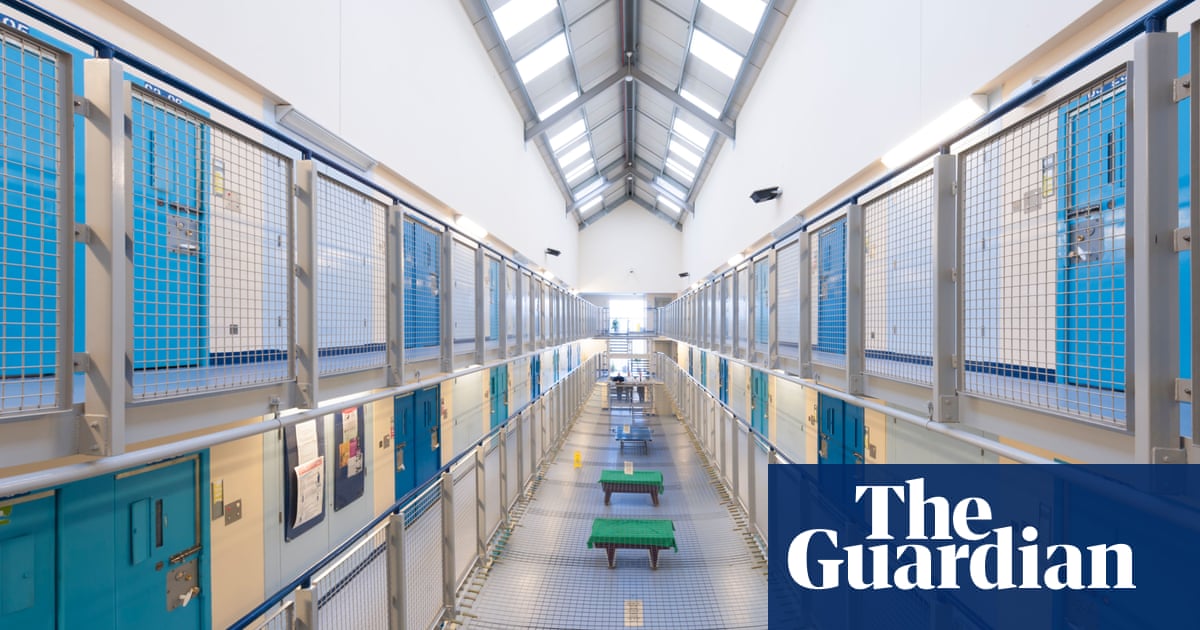
The government is to end its early-release scheme for prisoners in England and Wales, designed to ease the pressures created by the Covid-19 pandemic and under which about one in 15 eligible prisoners were ultimately freed.
As the pandemic escalated rapidly in early April, the Ministry of Justice said up to 4,000 prisoners would be eligible for the new end-of-custody temporary release (ECTR) scheme, which allowed for the early release of low-risk prisoners within two months of their scheduled release.
To date only 275 prisoners have been released under the ECTR scheme, prompting prison reform campaigners to accuse the MoJ of “never having any serious intention of releasing more than a handful of people”.
The justice secretary, Robert Buckland, said: “This has been an unprecedented situation but thanks to the hard work and dedication of our staff we have stopped coronavirus taking hold in prisons, which means we can now pause the early-release scheme.
“We continue to keep this decision under review, but independent public health experts have judged our approach effective and we continue to do all we can to help the NHS and prevent our staff and prisoners from being at risk.”
The announcement to temporarily suspend the ECTR at the end of August came as the chief inspector of prisons for England and Wales warned that continued severe restrictions in jails – in effect amounting to solitary confinement – had created “a real risk of psychological decline” among inmates.
Deaths and infection rates behind bars were significantly lower than expected, with no Covid-19 suspected deaths of prisoners since the week ending 29 May. Ministers put the relative success down in part to the restrictive regime in place, which reduced time spent out of cells to about 30 minutes a day, suspended prison transfers and forced new arrivals to be quarantined for 14 days.
But in a significant intervention, Peter Clarke, the chief inspector, warned the Prison Service it should not simply reimpose the extreme limitations placed on prisoners earlier in the pandemic if there were to be a resurgence of the virus.
The Prison Service is in the process of implementing its recovery plan, which involves individual jails applying for permission to move to a new regime stage and then implementing – when authorised to do so – new models.
The official recovery framework states “progress will be slow and incremental, and restrictions may need to be reimposed in the event of local outbreaks”.
Publishing a review on prison visits during the pandemic, Clarke said: “In prisons, there is now a real risk of psychological decline among prisoners, which needs to be addressed urgently, so that prisoners, children and detainees do not suffer long-term damage to their mental health and wellbeing, and prisons can fulfil their rehabilitative goals.”
He added: “In light of the findings in this report, simply reimposing the restrictions that were necessarily applied in the early stages of the outbreak would be too narrow an approach.
“We have seen many prison leaders who are convinced that they could have delivered more purposeful and more humane regimes without compromising safety, and who are frustrated by the restrictive approach they have been forced to take. Every establishment is different. Local initiative, innovation and flexibility which recognises those differences should surely be encouraged, and not stifled.”
Children in public sector custody lost face-to-face education, and for some exceptionally vulnerable individuals in women’s prisons, who usually benefited from a range of specialist support services provided by external organisations, the absence of these services was extremely damaging, Clarke said.
Peter Dawson, the director of the Prison Reform Trust, said: “This vital report shows that the measures prisons have taken to contain Covid-19 are not sustainable.”
A Prison Service spokesperson said: “Our hard work has helped save lives, and we have prioritised prisoners’ mental health by making sure they have the practical and emotional support they need.
“Secure video calls, mobile phone handsets and extra phone credit have helped maintain important family ties, and we are reintroducing daily prison life where possible in line with public health advice.”












